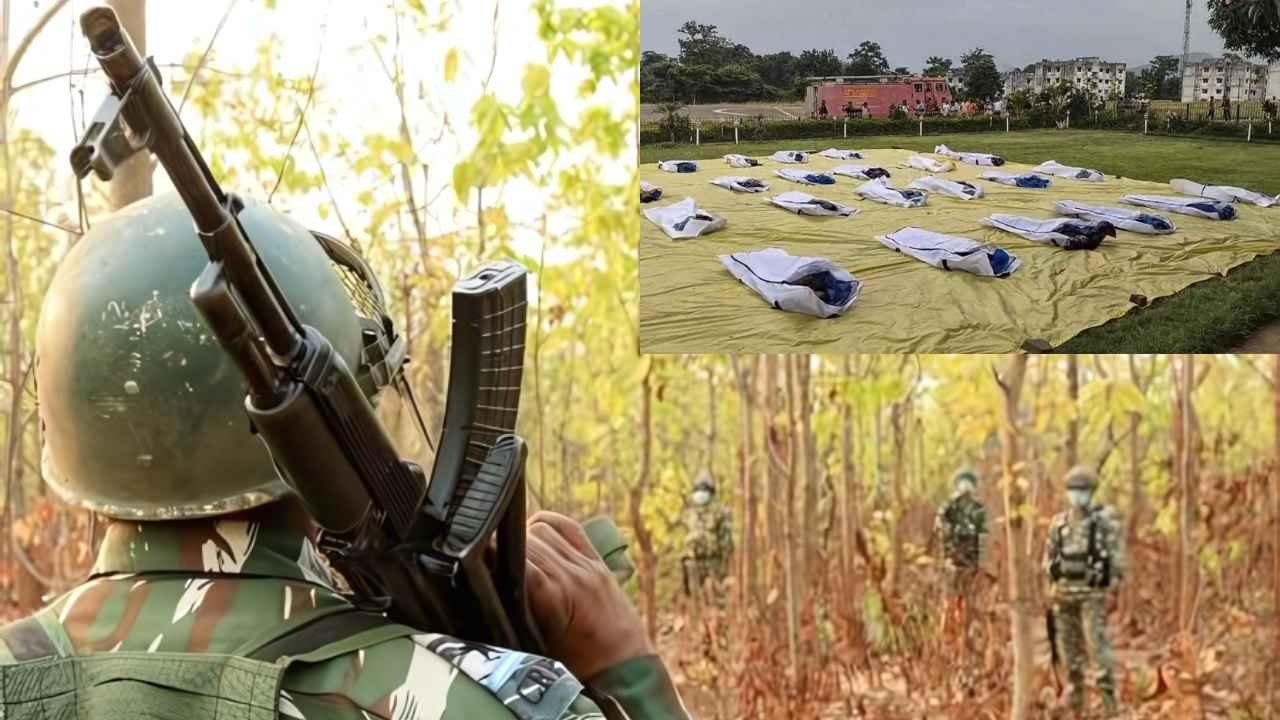Maoists' Influence Wanes in Bastar Amid Security Gains
Intensified security operations and internal strife have significantly weakened Maoist strongholds in Bastar, leading to unprecedented losses and surrenders.
Total Views |

The Bastar region of Chhattisgarh, once a formidable bastion for Maoist terrorists, is witnessing a marked decline in extremist activities. A combination of intensified security operations and internal discord within the Maoist ranks has led to substantial setbacks for the terrorists, signalling a potential turning point in the decades-long conflict.
Unprecedented Losses in Recent Encounters
In a significant operation on October 4, 2024, security forces engaged in a nine-hour-long encounter in the dense forests of Abujhmarh, resulting in the elimination of 38 Maoist terrorists. This operation is considered the largest of its kind against Maoist forces in Bastar, dealing a severe blow to the terrorists' operational capabilities.
Earlier, on April 16, 2024, a major clash in Kanker district led to the deaths of 29 Maoists, including senior commanders. This encounter, occurring just days before the Lok Sabha elections, was a strategic move to ensure peaceful polling in the region.
Surge in Surrenders and Declining Morale
The intensified pressure from security forces has prompted a wave of surrenders among Maoist terrorists. In May 2024, 33 Maoists, including individuals with significant bounties on their heads, surrendered to authorities in Bijapur district. The surrendered cadres expressed disillusionment with the Maoist ideology and a desire to return to mainstream society.
This trend continued in subsequent months, with numerous Maoists laying down arms, citing internal conflicts and dissatisfaction with the leadership. The cumulative effect of these surrenders has further weakened the terrorists' operational strength and morale.
Internal Strife and Leadership Crisis
Reports indicate that the Maoist organisation is grappling with severe internal unrest. Infighting among leaders and a loss of faith among local cadres have exacerbated the group's decline. According to Bastar Range Inspector General of Police, Sundarraj P., the Maoists have faced significant losses in the Dandakaranya Special Zonal Committee area, leaving the organisation leaderless and directionless.
Strategic Security Operations
The success of security forces can be attributed to well-coordinated operations and strategic planning. In the October 4 encounter, forces trekked 25 km deep into the forest and launched a pincer movement that took the Maoists by surprise. The gunfight continued for hours, covering an additional 10 km, resulting in the recovery of 31 bodies.
Such operations have not only inflicted heavy casualties on the Maoists but have also disrupted their supply lines and communication networks, further diminishing their operational capabilities.
Community Engagement and Development Initiatives
Beyond military operations, the government has intensified efforts to win the hearts and minds of the local population. Development projects focusing on infrastructure, education, and healthcare have been initiated to address the socio-economic grievances that have historically fueled insurgency.
Community policing and outreach programs have also been implemented to build trust between security forces and local communities, encouraging cooperation and intelligence sharing.
Challenges Ahead
While the decline in Maoist activities is evident, challenges remain. The terrorists have historically demonstrated resilience, and there is a possibility of regrouping in other regions. Sustaining the current momentum requires continuous vigilance, adaptive strategies, and addressing the root causes of insurgency, including poverty, land disputes, and political alienation.
Conclusion
The waning influence of Maoists in Bastar marks a significant achievement for security forces and the government. The combination of effective military operations, internal discord among terrorists, and proactive community engagement has created a conducive environment for peace and development in the region. However, sustained efforts are essential to consolidate these gains and ensure lasting stability in Bastar.
Article by
Shomen Chandra
Sub Editor, The Narrative


